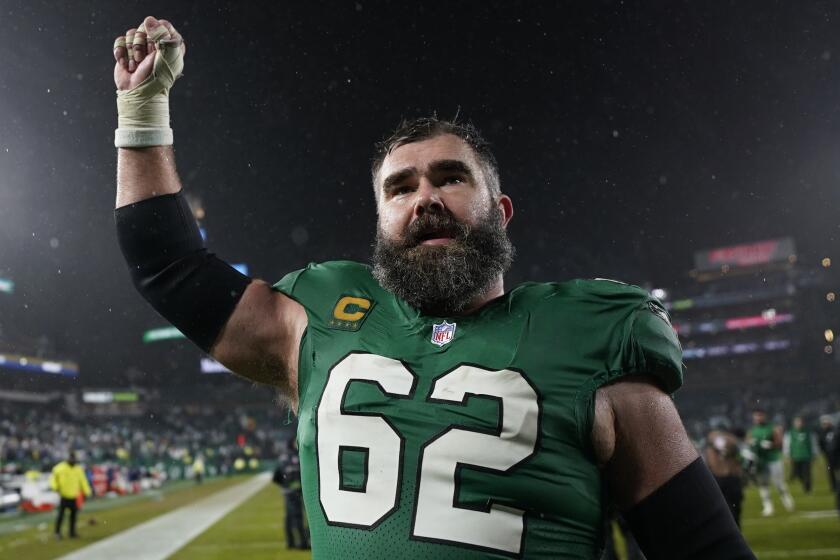Actor portrayed Lt. Gerard on ‘The Fugitive’
Barry Morse, an actor best known for portraying Lt. Philip Gerard, who relentlessly pursued David Janssen’s Dr. Richard Kimble on the hit 1960s television series “The Fugitive,” has died. He was 89.
Morse, who maintained homes in England and Canada, died Saturday at University College Hospital in London, his son, actor Hayward Morse, told the Canadian Press news agency. A cause of death was not announced.
In the 1963 series debut of “The Fugitive,” Kimble is falsely accused of murdering his wife and escapes from Gerard. Kimble spends the next four years eluding the detective and hunting the one-armed man he believed was the real killer.
The finale, broadcast Aug. 29, 1967, made TV history -- the ABC show was seen by more than 72% of viewers, a record that stood until “Dallas” eclipsed it 13 years later. In the climactic scene, Gerard shoots the one-armed man to save Kimble’s life.
Some viewers were so wrapped up in the melodramatic morality play that they had trouble distinguishing Morse the actor from his cop-as-villain character.
“Elderly ladies bashed me across the head with their handbags, or some hulking great man would come up to me in a bar and say: ‘Don’t you understand? The guy’s innocent!’ It was an enormous compliment -- and quite dangerous,” Morse told the London Daily Mail in 1993.
He considered the part groundbreaking because the character was “carefully designed to be disliked. . . . I was the most hated man in America, and I loved it,” Morse said in the Daily Mail article.
His son told the Canadian Press that his father believed “The Fugitive” was “one of the best things television had produced.”
The widely syndicated show failed to provide him “one thin dime” in recent years, Morse often said, because residuals from the series ran out after five years.
Morse was born June 10, 1918, in London, and grew up poor. At 14 he left school, partly to escape beatings the left-hander said he received for refusing to write with his right hand.
While working as a messenger, Morse happened upon a public performance by students of the Royal Academy of Dramatic Art. The discovery led him to attend the school on scholarship from 1935 to 1937, and he was soon acting in West End theaters and appearing in British Broadcasting Corp. productions.
After moving to Canada in 1951, he was such a force on Canadian Broadcasting Corp. shows that at least one critic referred to him as “test pattern,” claiming the network put him on when it had nothing else to air.
In the early 1950s, Morse created “A Touch of Greasepaint,” a radio program about the history of acting that aired for a decade.
The show was the genesis of his one-man play “Merely Players,” which he performed to help establish a show-business retirement home in Toronto in 1993.
Over seven decades, he played more than 3,000 roles on stage, radio, television and film, according to his website.
His television work included miniseries such as “The Martian Chronicles,” “The Winds of War” and “Anne of Green Gables: The Continuing Story.” He also portrayed professor Victor Bergman in the syndicated mid-1970s series “Space: 1999.”
A role on the police drama “The Untouchables” led to his being cast in “The Fugitive.” Because he did not appear in every episode, Morse regularly traveled to Canada in 1966 to serve as artistic director of the Shaw Festival, established in Niagara-on-the-Lake to honor playwright George Bernard Shaw, whom Morse regarded as “a great hero.”
His wife of 60 years, actress Sydney Sturgess, died in 1999. Their daughter, Melanie Morse MacQuarrie, also an actress, died in 2005.
In addition to his son, Morse is survived by four grandchildren and several great-grandchildren, the news agency reported.
--
The complete guide to home viewing
Get Screen Gab for everything about the TV shows and streaming movies everyone’s talking about.
You may occasionally receive promotional content from the Los Angeles Times.




